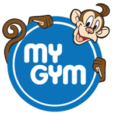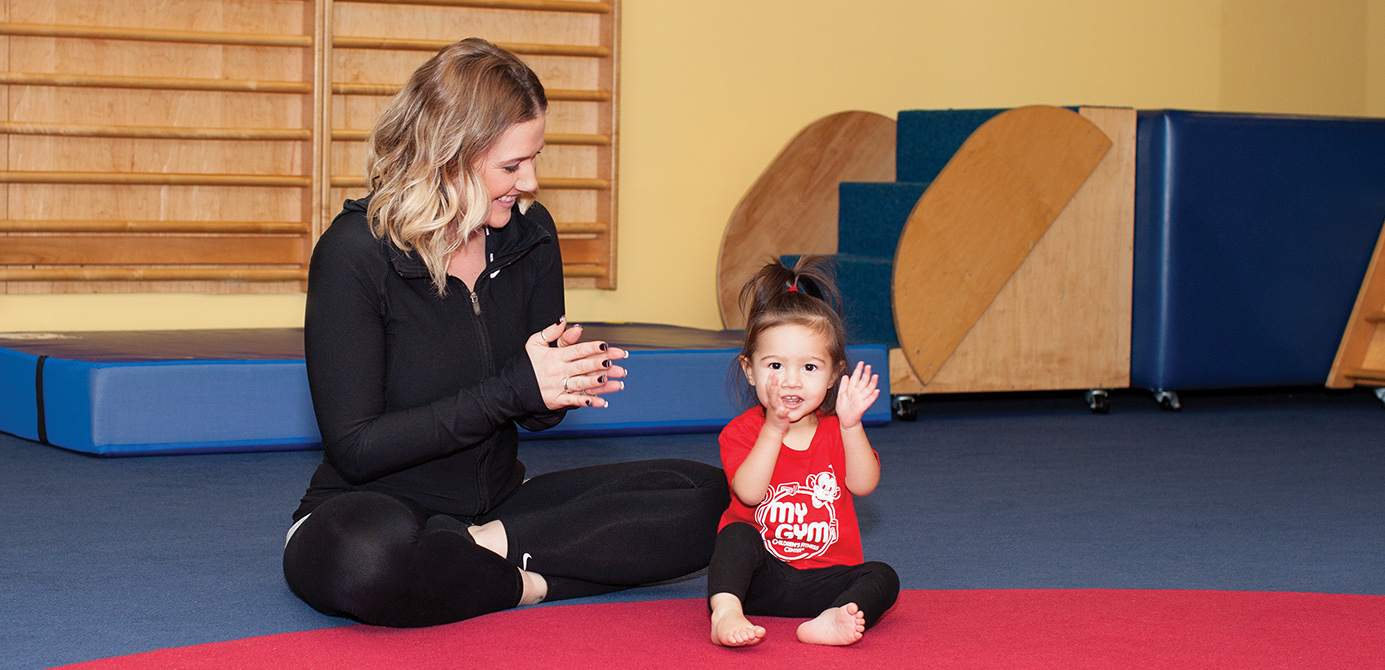Parent-Child Classes That Make A Big Difference
Being a parent is often like a rollercoaster ride. It is daunting, exciting and frightening all at the same time. Being responsible for the health and wellbeing of a little person can often feel overwhelming. This is completely normal to feel anxious and a bit unsettled.
As a matter of fact, there is nothing about becoming a parent that prepares you for raising a child, whether that child is a baby, toddler, preschooler, or teenager. It’s tough, to say the least. Even though sleepless nights with a newborn feel like the most exhausting thing in the world, parenting doesn’t actually get any easier as your child gets older — it just gets different.
If you’re feeling uneasy and hugely unprepared for the present and future challenges of parenthood, keep these two things in mind. First, you are not alone. Most parents of zero to three-year-olds call parenting their biggest challenge. Second, you don’t have to struggle in confused solitude, winging your way through yet another baffling day of power struggles, sibling rivalry, and behaviour management with your child: Join us with your child and take a class together.
Before you burst out laughing, know that parent-child classes can do wonders for growing your confidence in bonding with your child in a healthy way. Studies have found that nearly any type of parent-child class, regardless of the type of instruction, can increase positive parent-child outcomes — communication, confidence, respect, and establishing a deeper connection.
Early start leads to earlier outcomes
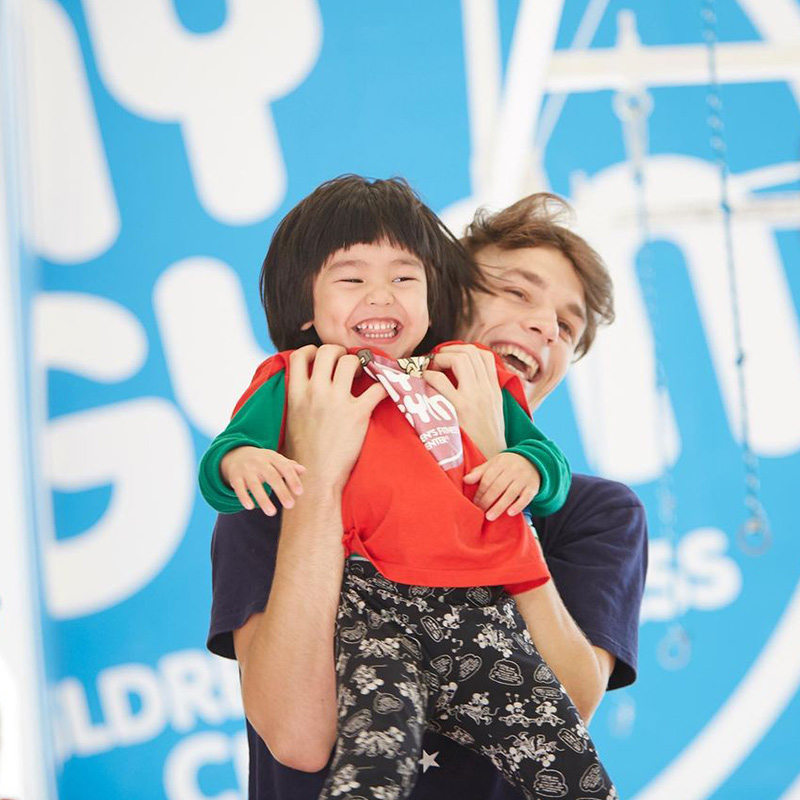
There is no need to feel awkward or shy about getting help when it comes to knowing more about how you can improve your parenting methods. By starting your parent-child class early you will be getting the right answers to the trickiest parent-child relationship building and child development questions, and start implementing what you’ll learn right away. It will also help improve your overall happiness in an easy, very accessible, and affordable manner.
Start as early as when your baby is less than 6 months old. It’ll give your child a head start in advancing the skills necessary for the development and for meeting the growing up milestones at an ideal age.
Through a variety of visually and sensory-stimulating activities introduced in the parent-assisted class, you will see your baby’s lovely eyes starting to follow you. Begin taking notice of her surroundings and even hear her making vocal sounds when happy. Or start to laugh when she is tickled or amused. Older babies will begin to sit up on their own.
These specially designed parent-child program class lays the foundation for physical literacy and helps infants develop diverse gross motor skills to support an active lifestyle later on in life, along with all of the other cognitive, emotional, social and physical benefits that go with it.
Big-picture approach
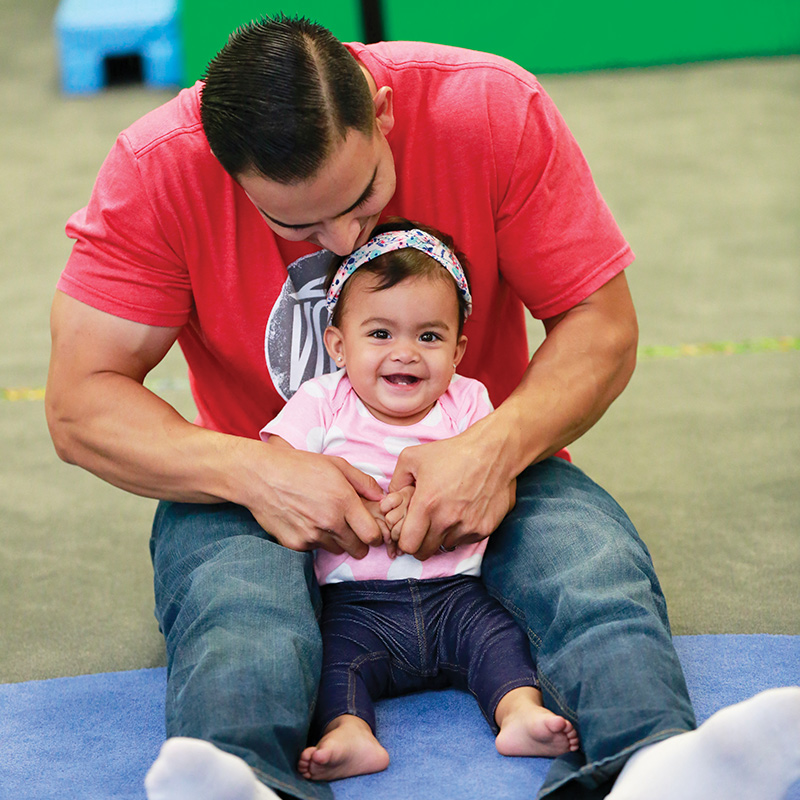
A big-picture approach to developing healthy bonding begins by practising emotional regulation (for you and your child), finding routines, teaching resilience and discipline, fostering strong sibling bonds, and understanding your own anger triggers.
Our teaching methods are strongly rooted in a play-based, sports-based, hands-on concept, as children learn better and faster through fun experiences and lively interactions. Our non-competitive environment adheres to self-evaluation and focuses on each individual’s learning progress, rather than comparing one’s skills and progress to other children.
Parent-assisted classes also facilitate parents to be involved in their baby’s progress and be able to openly discuss any of their concerns. After all, learning continues at home as well and it will be good for parents to be active participants in their child’s development and learning progress.
Enriching holistically
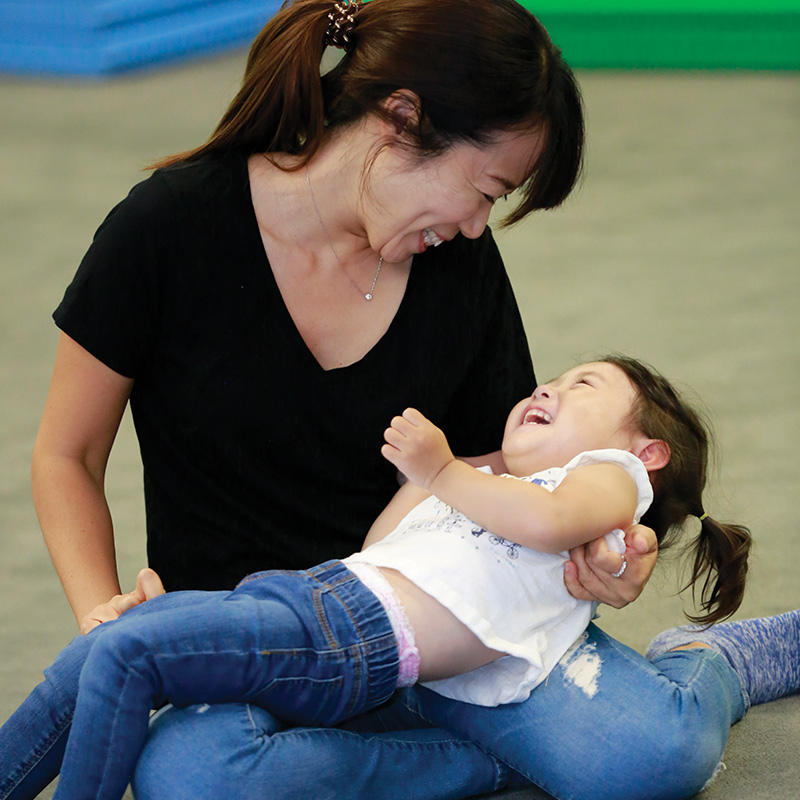
When you decide to participate in a parent-child class, you will be exposed to how the concepts of sharing and playing with peers and learning to take turns in a group environment are taught. A variety of activities that focus to help your baby in their 4 domains of development (cognitive, social, physical, and emotional).
In just a few weeks, you’ll see your baby getting stronger, following instructions better, and beginning to become more sociable and much more! Parents are also taught skills on how to create complimentary activities at home. So that learning can continue at home, boosting a fun bonding experience between the children and the parents.
Think of the parent-child program as an enrichment class/ preschool preparatory class that help your child adapt and quickly adjust to the traditional school setting. The physical activities incorporated into the program help even hyperactive children improve their attention span, and working memory and prime their brains for learning.
The program can also help in curbing aggression, anxiety and stress. The age-appropriate and expertly planned activities can expand your child’s energy while levelling up their concentration and learning skills.
Program for children with special needs
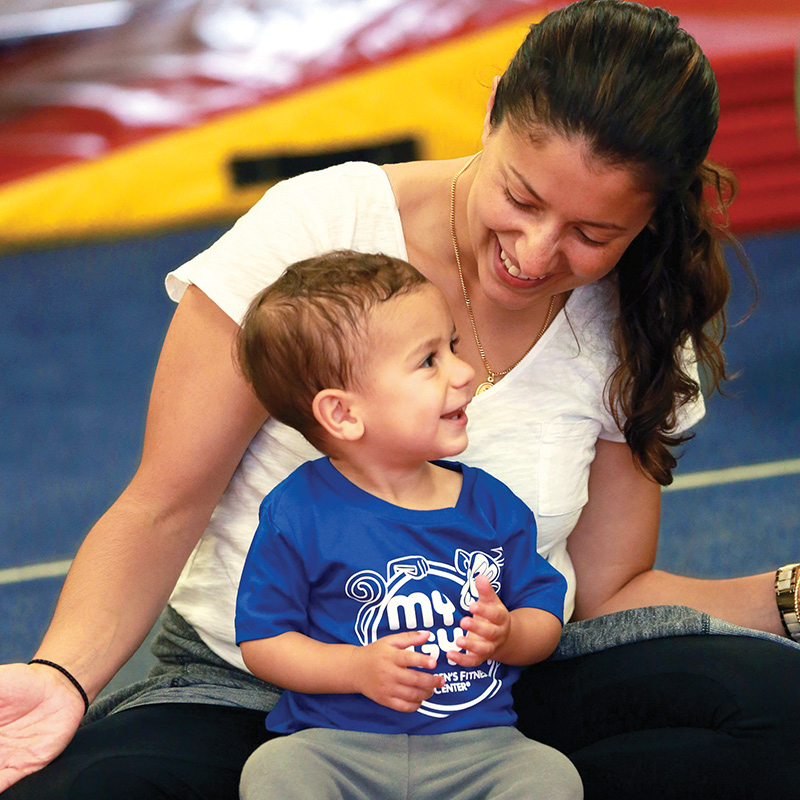
There is also a Special Needs Enrichment program designed to cater to children with special needs, aged 4 to 8 years old. This parent-assisted program emphasizes gross motor skills, sensory integration, awareness and socialization skills necessary to carry out everyday school activities and has a low pupil-to-teacher ratio for a more structured and conducive learning environment.
Age-appropriate pieces of equipment will be provided to help children with limited abilities develop skills at their own pace, to move towards independence.
For every class journey, parents will be told what to expect from the classes – what will be taught to the children, take note of how they react at first (especially if they are new), parent-teacher participation activities and so on.
The best part of a parent-child class is that the teachers will actively share your child’s progress with you and will advise you in areas where you can work with them, together. It is advisable to complete a whole term of your chosen program, so working on your child’s developmental milestones and more, will become more effective.
About My Gym
In addition to developing physical agility and wellbeing, our Parent-Child Class involves infants and young children in dynamic physical activity and movement that help build the neural networks in their brains. Making it easier for them to acquire intellectual skills, navigate complex social situations, and nurture emotional development.
To find out more about how My Gym plays a key role in supporting “whole-child development,” please visit any of our centres. Choose a day when you will be relatively free and come over with your child in tow. Your child could be an infant (even younger than 6 months), a toddler or a preschooler — age is not a bar for enrolling.
My Gym has child enrichment programs that lay a firm foundation for your child’s personal, academic and future growth by involving your child in age-appropriate creative learning and problem-solving activities.
Please note: My Gym classrooms are thoroughly sanitized every day — the tables, the chairs, the children’s activity stations and everything else the child might touch is made safe and clean. Please wear a mask, wash hands frequently, and practice social distancing.
Frequently Asked Questions
Why is it important for parents to be involved in their children’s education?
Though parenting is a demanding yet exciting journey, involving parents in a child’s development programs helps strengthen the relationship between a parent and their child, making it easier for parents to assist children in meeting their developmental objectives. Parents who enrol in a parent-child program class discover more about healthy parenting approaches and begin practising emotional regulation. Parents that actively participate in their child’s learning experiences also tend to support consistent learning and growth at home.
How do you involve parents in children’s learning?
A parent-assisted class incorporates the perfect blend of physical, intellectual, social, and sensory-stimulating activities designed to assist children in meeting their first mile developmental goals. Parents can support their children as they navigate complex situations and express their feelings more easily by participating in a play-based learning approach. When parents engage their children in exciting activities at home, such as passing objects or dancing, a child’s gross motor skills are strengthened.
What are parent and child classes?
A parent-assisted enrichment program for children is designed for parents to observe and assist in their child’s development through each stage of learning during early childhood. It educates parents on various aspects of early childhood development and encourages them to adopt parenting techniques that enhance the effectiveness of the preschool preparatory class. These sessions are intended to provide toddlers with a supportive learning environment as well as to strengthen parental bonding.
How does parenting affect children’s academic performance?
Effective parenting improves a child’s learning and skill development. When parents participate in their child’s learning process, they tend to evaluate their child’s development and identify areas of concern that must be addressed. As the bond between a parent and a child deepens, parents gain confidence in instilling essential skills in their children, whilst toddlers tend to follow instructions with greater ease. As a result, children begin to flourish academically and holistically in their journey of learning.
What are the 3 benefits of parent involvement?
A parent-assisted class is directed towards:
1. Laying a strong foundation for the development of both fine and gross motor skills through a variety of exciting and enriching play-based activities.
2. Developing creativity and critical thinking skills through a variety of cognitive and sensory-stimulating activities.
3. Improving a child’s linguistic and social skills through play and peer socialization.

